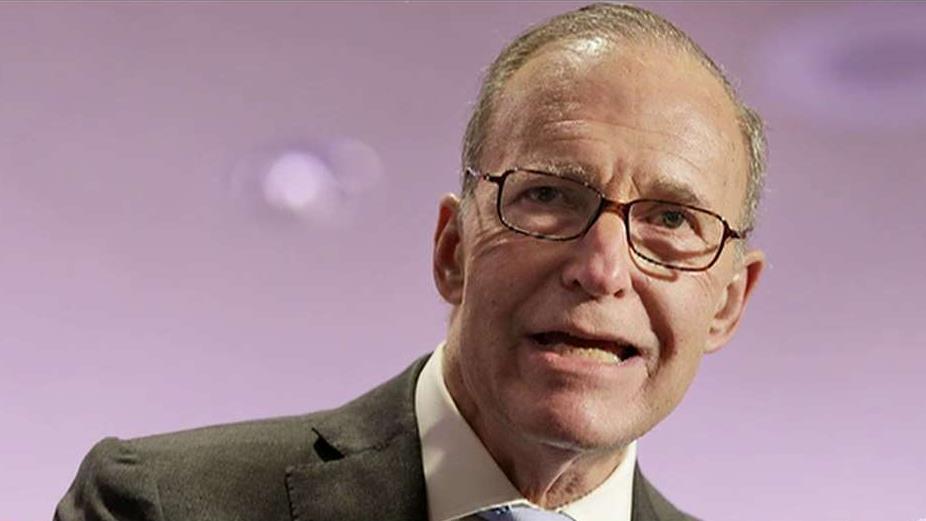Larry Kudlow to replace Gary Cohn as Trump’s chief economic adviser
President Donald Trump will name Larry Kudlow, who was part of the Reagan administration, as his top economic adviser, White House Press Secretary Sarah Sanders confirmed on Wednesday.
"Larry Kudlow was offered, and accepted, the position of Assistant to the President for Economic Policy and Director of the National Economic Council," Sanders said in a statement. "We will work to have an orderly transition and will keep everyone posted on the timing of him officially assuming the role."
Kudlow, a free-market economist, will replace Gary Cohn, who resigned as National Economic Council director last week after Trump announced plans to implement tariffs on steel and aluminum imports. The CNBC contributor is expected to take the role despite his own opposition to tariffs. As NEC head, he will play a key role in shaping presidential policy related to the economy.
“I’ve known him a long time,” Trump told reporters outside the White House on Tuesday. “We don’t agree on everything, but in this case, I think it’s good. I want to have a divergent opinion. We agree on most.”
Trump added that Kudlow “has come around to believing in tariffs as also a negotiating point,” adding that his renegotiations of trade deals wouldn’t go “nearly as well” without tariffs.
A longtime fixture on Wall Street, Kudlow served as associate director of economics and planning in the Office of Management and Budget during President Ronald Reagan’s first term in office in the 1980s. Kudlow is also a former chief economist and senior managing director at the now defunct investment bank Bear Stearns.
Kudlow served as an informal adviser to Trump during the 2016 campaign. He also supported the tax overhaul that passed late last year.
Kudlow is set to assume the role just days after he joined economists Art Laffer and Stephen Moore in penning an op-ed that criticized the tariff proposal, referring to the plan as a “crisis of logic.”
“Tariffs are really tax hikes,” Kudlow, Laffer and Moore wrote. “Since so many of the things American consumers buy today are made of steel or aluminum, a 25 percent tariff on these commodities may get passed on to consumers at the cash register. This is a regressive tax on low-income families.”
A formal announcement on Kudlow’s appointment is expected this week.




















